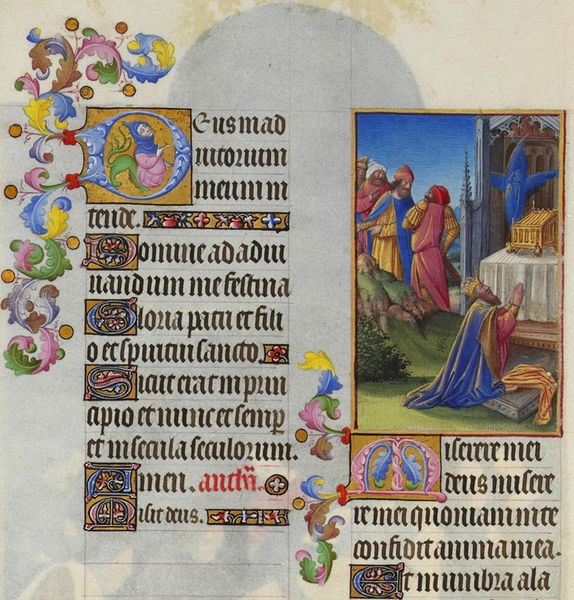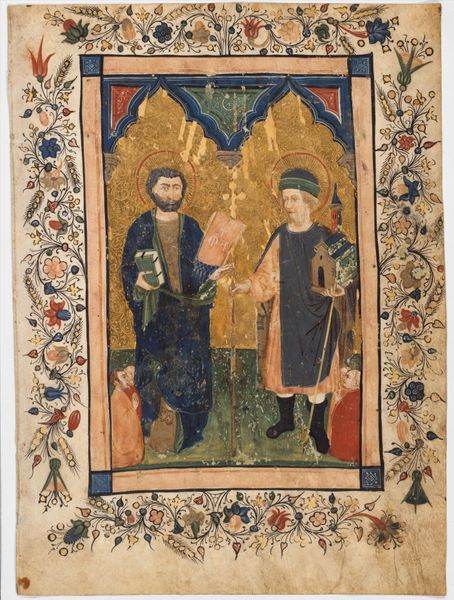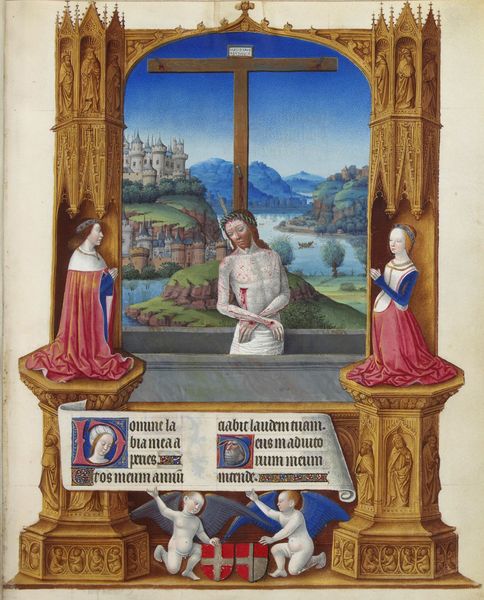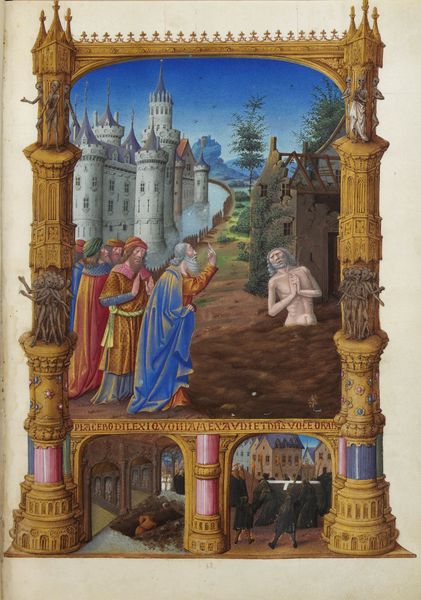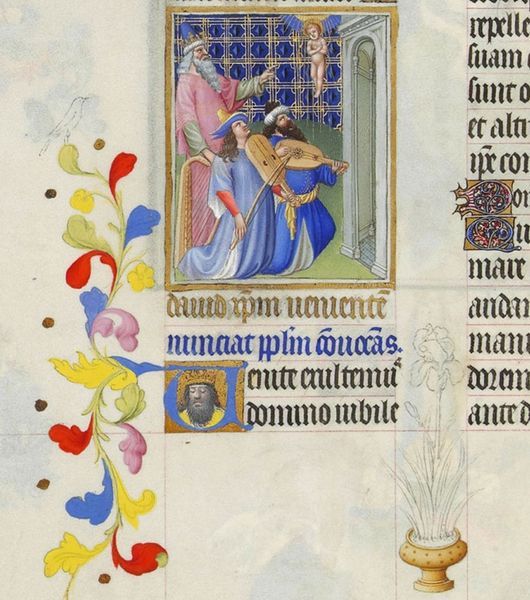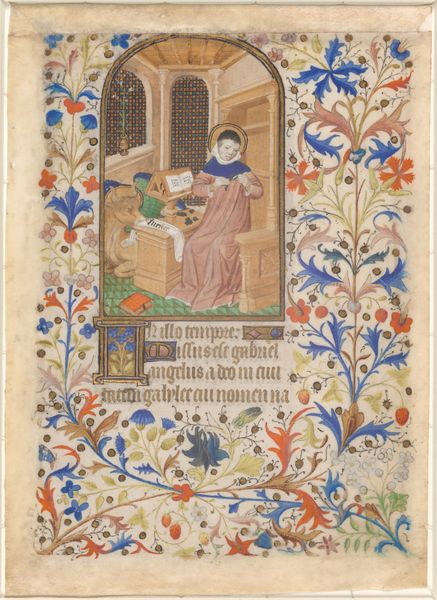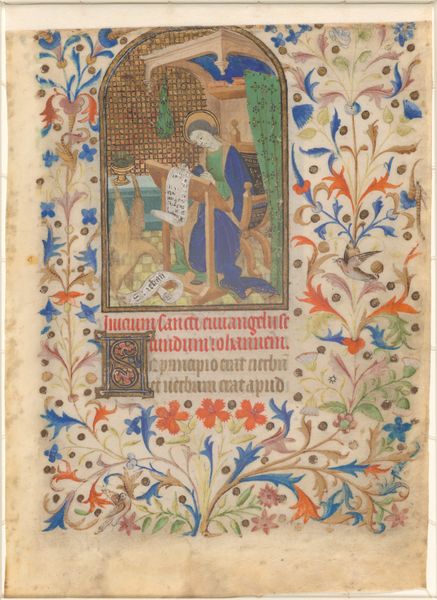
St. Francis Receiving the Stigmata
0:00
0:00
jeanfouquet
Bibliothèque nationale de France (BnF), Paris, France
tempera, painting
#
tempera
#
painting
#
landscape
#
figuration
#
oil painting
#
history-painting
#
italian-renaissance
#
mixed media
#
miniature
Dimensions: 20.5 x 14.4 cm
Copyright: Public domain
Editor: Here we have Jean Fouquet’s painting, "St. Francis Receiving the Stigmata". It’s tempera, and the detail is incredible, especially considering it’s a miniature. What strikes me is the landscape – so detailed and almost a character in itself. What’s your take? Curator: Considering its likely placement within a larger book, the intense detail speaks to the luxury of materials employed, as well as the labor needed to produce it. How does that labor connect to the image of St. Francis, himself an advocate for simple living and devotion? Editor: That’s a fascinating contradiction I hadn’t considered. So, the value of the materials and the painstaking process of creation clashes with the supposed humility represented in the image? Curator: Exactly. Think about where the pigments came from – the mining, the trade routes, the skilled artisans preparing them. Each step involved complex social and economic networks. Do you see any evidence of this in the landscape of the work, considering Italian Renaissance conventions? Editor: I see a walled city in the distance; that really points to a complex social order, far removed from the natural setting of St. Francis's revelation. Is it meant to draw a parallel? Curator: Precisely! We see both the constructed and the natural world in play. And that dazzling golden seraph above… Consider the gold leaf; where did that gold originate? How was it refined, hammered, and applied? The painting becomes a visual record of both spiritual belief and material production. Editor: I'm seeing the painting now as less about religious ecstasy, and more about a statement of wealth, patronage and consumption. All those luxurious elements tell a bigger story than just the one of St. Francis. Curator: Indeed! We’re able to consider both the spiritual and the material, offering multiple, potentially conflicting narratives about the work’s meaning.
Comments
No comments
Be the first to comment and join the conversation on the ultimate creative platform.

